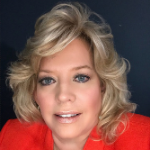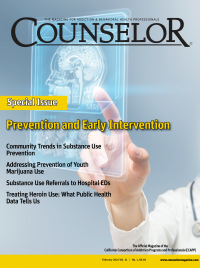Share
I began my career in the justice system almost twenty-eight years ago and worked in many areas of the system: in corrections, probation, youth services, the legal field, and finally in community mental health and substance use treatment. Throughout my career, substance use disorder (SUD) treatment had very specific philosophies and language for treatment. Unfortunately, many of those things we thought we were doing well were, in hindsight, just woefully inadequate.
Traumatizing Tactics
My entry into SUD treatment was as a counselor in a correctional system. At that time the treatment was referred to as “confrontational therapeutic community.” In this model we thought it was appropriate to confront all aspects of people, so much so that we would sit individuals down in a chair, in the middle of the group, and proceed to tell them what terrible people they were with the hope that if we broke them down, we could build them back up. What we realize now is that many of those individuals already had significant trauma, the treatment itself was traumatic, and the treatment exacerbated the already existing trauma. For the most part, treatment has emerged and thankfully improved with evidence-based models and a better understanding of how substances affect brain chemistry. Unfortunately, I still see programs that want to use a high degree of confrontation—there is still the perception that individuals who have SUDs should be punished. With some individuals being direct is necessary, and even the use of contracts and structure is needed, but the use of traumatizing tactics in treatment is certainly no longer appropriate.
The Language We Use
We have also used terms and language in SUD treatment that have not withstood the test of time and are still widely used. For example, one of the common philosophies is that “A person has to hit rock bottom in order to get better”—the perception that people had to suffer in order to get better. What we know now is that being ambivalent is just human nature. People who have heart attacks are not told to come back when they stroke out; we educate, motivate, and help them understand and believe they can get better. Another similar phrase is, “They are just in denial. They are just not ready yet.” I think this was (historically) the excuse counselors gave when people did not follow the rules and do what they were told. It is much easier to blame clients instead of evaluating our own skills as counselors.
In my younger years almost everyone in the field was in recovery. As a result, I often heard, “Twelve Steps: this is the way I got sober and this is the way you will get sober” and “If you don’t like it, hit the door.” What we know now is that people are going to find recovery many different ways, and what works for some may not work for others. When I train, I typically go around and ask attendees to tell me their definition of recovery. Everyone always has a bit of a different definition, none of which are wrong. Our clients are entitled to their own definitions as well. Being open to different paths leads to better engagement and commitment to change.
We all know language is crucial in promoting change and reducing stigma for individuals with SUDs. Additionally, it promotes change in the way the field of addiction treatment is viewed. Historically we have used terms such as “addict,” “pill head,” “alcoholic” and even called clients by their diagnoses. The reality is that the people we serve are mothers, fathers, sisters, brothers, sons, daughters. We do not refer to people as “heart attack” or “hypertension.” Just because they have an illness, does not mean it should define them.
While I was consulting for an organization I sat in on an adolescent group and the counselor told the teens to go around and introduce themselves to me. Each adolescent responded with a statement like, “My name is Bob, and I am bipolar, cannabis dependent, and somatoform disorder.” I was appalled that these young adolescents had defined who they were by what they had been told their diagnoses were. This, of course, had to be addressed and it is so unfortunate that it still occurs in some places. Another common phrase is that people are “suffering from” or “battling” an addiction. How about instead of the negative, we say these people are “living in recovery?” Treatment should be a positive and safe place. The language we use is contagious, and in and of itself can start the process of change.
Another typical phrase is, “Relapse is part of recovery.” No, it is not! For some it may be a possibility, but I have treated hundreds of individuals over the years who have never relapsed. Why should we tell them something that sets them up for failure? Education is critical; we need to stress the positives while simultaneously preparing for the risks and helping them implement safety plans. Self-fulling prophecies promote negative thinking.
Understanding the Changes
I have found that it is human nature that, when we tell people things they do not want to hear, they go through a process to get to acceptance. They may certainly go through the stages of change, but I have found other typical responses as well. For instance, if doctors tell patients they have a life-threatening illness, the typical response is, “There must be some mistake. I want a second opinion.” I look at this as the first stage of acceptance. We forget that when we tell clients they have a SUD we have just told them they have a life-threatening illness; it is a hard thing to hear and we need to acknowledge that. After that initial phase they move to the response of “Oh my gosh, I do have this illness. How will it impact me?” They often have a period of depression as they begin to recognize they do have a problem. Once through this phase, they get to what I refer to as the “Why Me” phase: they often ask themselves, “Why did this have to happen to me? My friends can go out and drink, why not me?” They often display anger as they move through those feelings. After this process they move toward acceptance of their illness and begin to change behavior. Ambivalence is not a bad thing; it is just a normal human reaction, preparing themselves to deal with change.
New Treatment Methods
Historically, we have had no tolerance for harm reduction. The field has hung on to this old way of doing business and for many it is still taboo even to mention it. The reality is that, for many, harm reduction may save their lives. I have used this approach with success as needed and it has helped move individuals to take steps toward full recovery.
For the most part, treatment has emerged and thankfully improved with evidence-based models and a better understanding of how substances affect brain chemistry.
In a similar way, we have had the same philosophies about medication-assisted treatment (MAT). The fact is this: medications can be life saving for many individuals. However, I would love to see us move away from using the term “medication-assisted treatment.” We do not have MAT for bipolar disorder, hypertension, or other illnesses. Rather, we use medications to treat bipolar disorder, hypertension, and other illnesses. If we just used the term “medications to treat SUDs” it would not be as stigmatizing and be much more normalizing. It would reduce not only the stigma of the term itself, but more importantly it would reduce the stigma against individuals who use those medications.
Conclusion
The justice system is still hanging on to some of these old philosophies. I believe the individuals who are involved in the justice system due to using substances—and who have additional issues such as trauma—are some of the most challenging and high-risk populations we treat. Using old modalities and language are no longer valid.
I also know that spending my career working with this population is one of the most rewarding experiences. It is time to recognize that the opinions we held certain yesterday are not adequate for the problems of today. We need to promote the positives in the treatment of SUDs and address the challenges of those involved in the justice system. We can and will change the lives of many in doing so.

Donna Johnson, JD, ICADC, ICCJP, ICCDP-D, LADC
Donna Johnson, JD, ICADC, ICCJP, ICCDP-D, LADC, is the director of training for Clare Matrix in Santa Monica, California. She has written numerous magazine articles and has been featured on CBS Atlanta, PBS, CNN, and Fox News discussing various addiction issues. Johnson is the co-author of The Matrix Model for Criminal Justice. She has been a keynote speaker and speaker for numerous state and national conferences, including the National Association for Drug Court Professionals Conference, the National Conference on Addictive Disorders, and the United Kingdom and European Symposium on Addictive Disorders.










 Counselor Magazine is the official publication of the California Association of Addiction Programs and Professionals (CCAPP). Counselor offers online continuing education, article archives, subscription deals, and article submission guidelines. It has been serving the addiction field for more than thirty years.
Counselor Magazine is the official publication of the California Association of Addiction Programs and Professionals (CCAPP). Counselor offers online continuing education, article archives, subscription deals, and article submission guidelines. It has been serving the addiction field for more than thirty years.